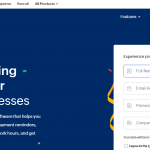Thinking about setting up a company in Anjouan? This guide explains who it suits, what documents you’ll need, the usual steps, and practical tips to avoid delays. For a streamlined start-to-finish process, see Anjouan company formation.
Why founders choose Anjouan
- Fast setup with clear paperwork and predictable steps.
- Business-friendly corporate rules for international founders.
- Remote onboarding is typically possible (KYC done online).
- Simple upkeep with straightforward renewals and filings.
Who Anjouan fits best
- Online services and consulting (agencies, SaaS, B2B services).
- Holding and IP management (licensing/royalties with proper compliance).
- E-commerce and digital products across multiple countries.
- Early-stage fintech/crypto support entities (where activities fit local rules).
Note: If your activity is regulated in your target markets (e.g., payment services, investment services, crypto exchange), incorporation alone is not a license. Plan regulatory approvals separately where required.
Documents you’ll usually need
- Passport copy and selfie/ID verification (clear, high-quality scans).
- Proof of address (utility bill or bank statement < 3 months).
- Short CV or business background for directors/UBOs.
- 2–3 company name options.
- Brief business plan (what you sell, customer geos, expected volumes).
- KYC/AML forms and UBO declaration.
Most delays come from expired documents or mismatched addresses. Double-check details before you submit.
Step-by-step incorporation flow
- Scoping: confirm business model, markets, and corporate structure.
- Name check & structure: approve the company name, directors, and share setup.
- KYC/AML: provide documents for shareholders, directors, and UBOs.
- Drafting & filing: prepare articles and lodge forms with the registry.
- Company issued: receive the certificate and corporate pack.
- Banking/PSP: open an operational account (bank or EMI/PSP).
- Post-incorporation: set invoicing, bookkeeping cadence, and renewal calendar.
Timelines and what speeds them up
Clean files move faster. Prepare KYC early, keep the business description simple and consistent, and respond quickly to any follow-up from compliance or banking.
Taxes, substance, and compliance
Keep proper books from day one. Depending on your activity and counterparties, substance expectations may apply (documented decision-making, contracts, and operational records). Your overall tax footprint can depend on where directors live, where customers are, and where contracts are signed. This is general information, not legal or tax advice.
Banking and payments
Many founders start with an EMI/PSP for quick onboarding and cards, then add a traditional bank later. Expect standard questions about UBOs, source of funds, top counterparties, expected monthly volumes, and geographic exposure. Choose providers that support your industry and currencies to avoid re-onboarding later.
Common pitfalls to avoid
- Unclear activity → compliance delays and extra questions.
- KYC gaps → expired IDs, mismatched addresses, missing UBO data.
- Bank mismatch → provider does not support your flows/geographies.
- Poor paper trail → keep contracts, invoices, and board resolutions tidy.
- Ignoring licensing → plan regulated approvals early if applicable.
Alternatives worth comparing
Depending on goals, also look at BVI, Seychelles, SVG, Panama, or Costa Rica. These differ in reporting, banking access, and how counterparties perceive them. A short discovery call often saves weeks by matching jurisdiction to payment routes and customer geographies.
Who can help
LegalBison is an international advisory firm helping entrepreneurs establish and manage companies across key offshore and onshore jurisdictions. The team combines legal precision with practical execution, guiding clients through incorporation, nominee services, banking coordination, and ongoing compliance. Learn more at legalbison.com.
“Setting up a company today isn’t just about incorporation — it’s about building a compliant foundation for growth,” says Aaron Glauberman, CEO of LegalBison. “We help entrepreneurs select the right jurisdiction and ensure their structure supports future expansion.”
FAQ
Can non-residents open a company?
Yes, subject to standard KYC/AML and a clear business description.
Do I need to visit in person?
Usually no — remote onboarding is common with proper verification.
What slows the process the most?
Incomplete KYC, unclear activity, and slow responses to compliance queries.
How should I pick a banking provider?
Match currencies, customer geographies, and risk profile; many start with an EMI/PSP and add a bank later.



